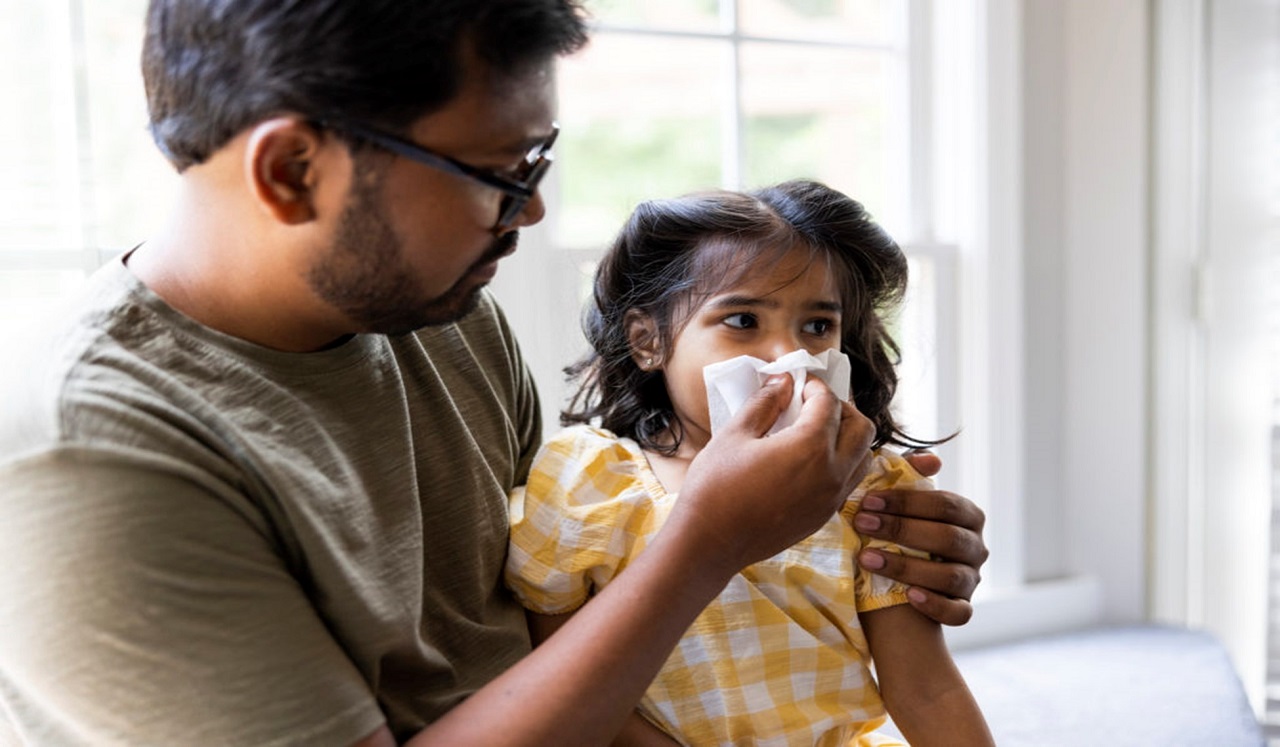For parents with sick kids, it can be difficult to know when and where to seek care, especially on weekends or evenings. Should you wait to see your pediatrician or seek care right away?
Robert Lapus, MD, a physician affiliated with Memorial Hermann, who oversees Pediatric Clinical Operations at Children’s Memorial Hermann Hospital, shares some suggestions for deciding where to go — and how to handle a true medical emergency.
Q: How can you tell if a respiratory illness warrants a trip to the ER?
Dr. Lapus: If your child looks OK and symptoms are minor, it’s a good idea to start with your pediatrician first. Pediatricians can often work in sick patients the same day. But some symptoms require attention from Urgent Care, including:
- Temperature of 100.4 degrees or higher in a baby younger than 4 weeks
- Temperature of 100.4 degrees or higher in a baby 4-8 weeks old who is acting sick, sleepier, fussy, or eating less
- Fever in any child with abnormal appearance, breathing, skin color, pain or difficulty moving
- Difficulty breathing or shortness of breath
- If your child has asthma and needs their inhaler/nebulizer more frequently than every three to four hours
- Seizures
- Sudden, worrisome change in behavior
- Loss or change in vision
- Persistent vomiting and abdominal pain
- Green vomit at any age, but particularly in newborns
Q: What child injuries should be seen in the ER?
Dr. Lapus: Broken bones should be treated in the ER, especially if they poke through the skin or are extremely painful or cause the skin to change to a blue or pale color. Other injuries that should bring you to the ER include:
- Head injuries with loss of consciousness, change in behavior, vomiting, seizures, sleepiness or fussiness
- Cuts or bites that don’t stop bleeding
- Large burns with blistering or skin peeling, particularly if over the joints, hands, or genitalia
- Bruises caused by a seatbelt after a car accident, particularly over the belly in small kids, especially if it is associated with abdominal pain or vomiting
Q: How should parents react in a major medical emergency?
Dr. Lapus: First, try to remain calm. Take a deep breath and ground yourself. Then:
- Start CPR if your child is not responsive.
- Give rescue breaths if your child is not breathing.
- If your child is unconscious but breathing, lay them on their left side.
- Call 911 and state clearly that you have an emergency and explain in detail what the situation is. Operators are trained to provide assistance over the phone, so follow their instructions carefully and stay on the phone as long as you can.
Q: What can parents do to be more prepared for a medical emergency?
Dr. Lapus: Parents should learn CPR, as well as what to do in a choking emergency, which is often taught at CPR classes. You can visit www.redcross.org to find a local class. Other important things to know, include:
- Learning how to apply direct pressure or a tourniquet in certain injuries is also important, and you can find information at stopthebleed.org.
- If your child has anaphylaxis, being comfortable using your child’s autoinjector can be lifesaving.
- If your child has a seizure disorder, being comfortable using your child’s rescue medication is very important as well.
- If your child has asthma, make sure to always have their medications on hand.
Q: What should you expect when you get to the ER?
Dr. Lapus: Each visit will be different, and it can be entirely unpredictable. If you have time to prepare for the visit, bring a phone charger, a list of medications your child is on, any important health documents and maybe a snack, but please ask the health care team if it is okay to feed your child. It’s also a good idea to try to have your child’s medical records on your cell phone. Once you arrive at the ER, you can expect the following:
- Your child will be registered and triaged. Triage is important because it’s your child’s first assessment by a health care provider and helps to determine their medical needs. The goal is to get the sickest and most severe injuries seen quickly. If your child has to wait, it may be because all the available rooms are filled.
- If your child’s condition becomes worse while waiting, please notify the staff.
- While in the waiting room, you may see other sick or injured children. Remain calm and reassure your child.
- When you’re moved out of a waiting room, you may be placed in a private room, a shared room or a room with multiple chairs. Sometimes the ER is so busy, to see your child quickly, the team may move you from one room to another at different stages of your child’s evaluation.
- Usually, your child will be seen by a nurse and a physician. At some hospitals, a junior doctor may see your child prior to the supervising physician checking in on you. While this might seem redundant and the same questions asked, it’s a great safety check to make sure all the information is accurate.
- After evaluating your child, the team will determine what tests or interventions are required. Sometimes they may need to call a specialist.
- In some cases, your child may need care at another location, and you may have to be transferred to a specialty hospital.
- If your child will be discharged, be sure you understand the after-care and follow-up instructions.
Memorial Hermann offers the largest network of emergency centers in Greater Houston, providing round-the-clock emergency care. We have also partnered with GoHealth Urgent Care to provide expanded urgent care services at convenient locations staffed and led by Memorial Hermann clinicians, who can provide in-person and virtual care for the whole family.
Memorial Hermann also operates a free 24-hour nurse triage call center that can help you choose the most appropriate place for care. Regardless of your health care affiliation, primary care provider, or insurance status, a bilingual staff is available 24/7 to answer calls on the Nurse Health Line – 713-338-7979 – to assess your health concerns and direct you to the right level of care. You can also visit nursehealthline.org.
NOTE: The Nurse Health Line is not designed to assist with life-threatening conditions or emergencies. People with life-threatening conditions and emergencies should immediately call 911.


